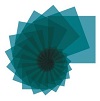Knowledge Levels
The three levels of knowledge development can be understood in various frameworks, such as: 1) the classical philosophical view of knowledge through senses, intellect, and intuition; 2) a cognitive approach distinguishing between recall, skills/concepts, and strategic thinking; or 3) a model for transdisciplinary projects including systems knowledge, target knowledge, and transformation knowledge. Another perspective includes the levels of learning as cognitive (knowledge), psychomotor (skills), and affective (attitudes). Philosophical approach Knowledge through senses: This is the most basic level, derived from sensory experience and observation. Knowledge through intellect: This level involves reasoning and using logic to understand and process sensory information. Knowledge through intuition: This is a higher level of direct, intuitive understanding that is not based on sensory input or step-by-step reasoning. Cognitive learning hierarchy Recall: The ability to remember and reproduce facts and information. Skills and concepts: The ability to apply rules, procedures, and concepts in a new context. Strategic thinking: The highest level, involving evaluation, synthesis, and solving complex problems, often by creating new strategies. Knowledge for transdisciplinary projects Systems knowledge: An analytical and descriptive understanding of the current state of a system. Target knowledge: Knowledge about the desired future state of the system. Transformation knowledge: Knowledge about the steps and strategies needed to move from the current state to the desired state. Learning domains Cognitive domain: Focuses on knowledge, including recall, comprehension, and application. Psychomotor domain: Involves the development of physical skills and coordination. Affective domain: Pertains to the development of attitudes, values, and emotions.
- The three levels of knowledge development are beginner, intermediate, and expert, with each stage defined by the balance between a person's mastered knowledge, recognized gaps in their knowledge, and blind spots they are unaware of. A beginner has a high ratio of blind spots to other knowledge, an intermediate has more mastered knowledge and recognized gaps, and an expert has mastered knowledge that outweighs both recognized gaps and blind spots.
Beginner Description: At this stage, a person knows very little and is largely unaware of what they don't know. Knowledge composition: Their knowledge is comprised mostly of what they are completely unaware of (blind spots), with few facts mastered and a limited awareness of the gaps they have. Dreyfus model equivalent: Novice. Intermediate Description: An intermediate learner has developed a solid base of knowledge and is increasingly aware of the gaps and complexities that exist within the subject. Knowledge composition: They have a growing amount of both mastered knowledge and recognized gaps, but still have blind spots that are unknown to them. Dreyfus model equivalent: Advanced beginner or competent. Expert Description: An expert has a deep and intuitive understanding of the subject, often capable of explaining it to others and applying it in new ways. Knowledge composition: Their applied knowledge surpasses both their known and unknown gaps. Dreyfus model equivalent: Proficient or expert.
